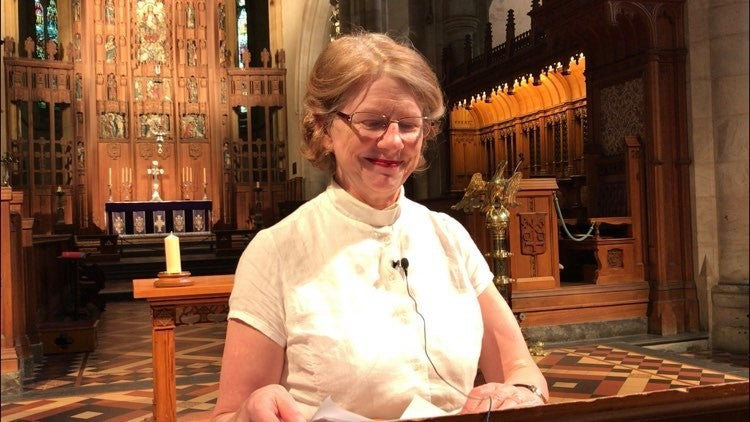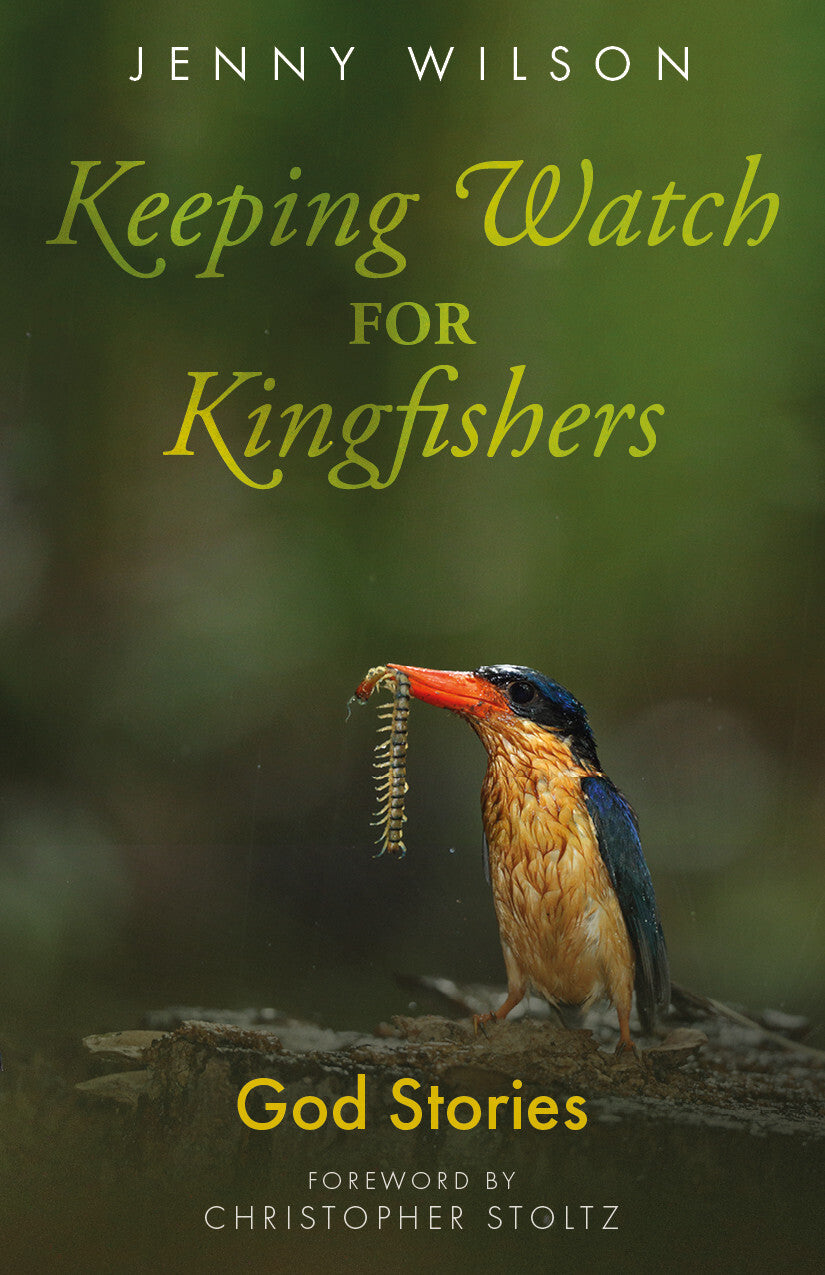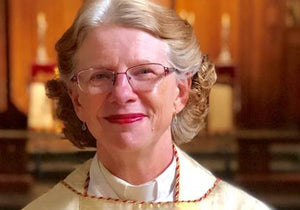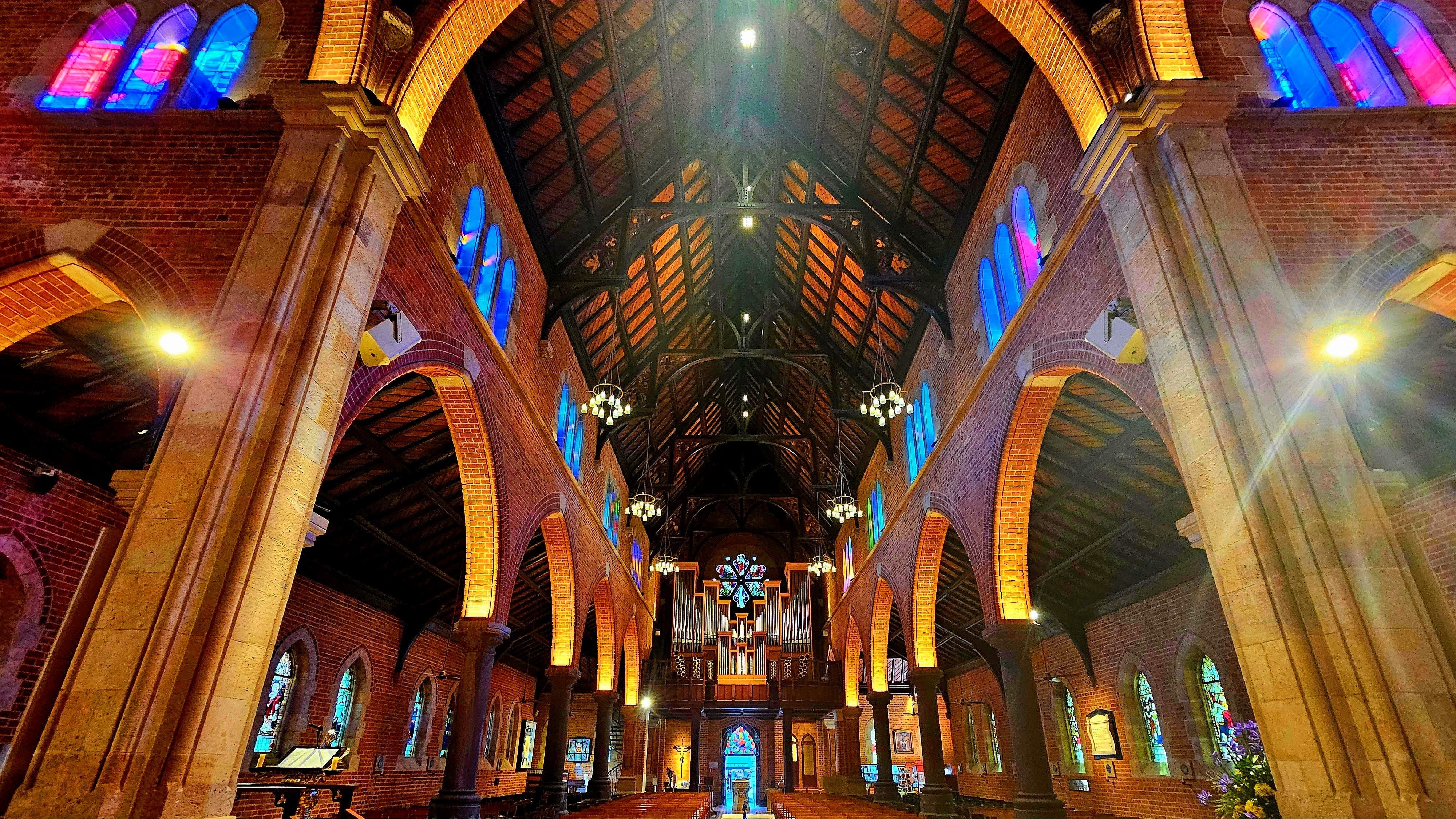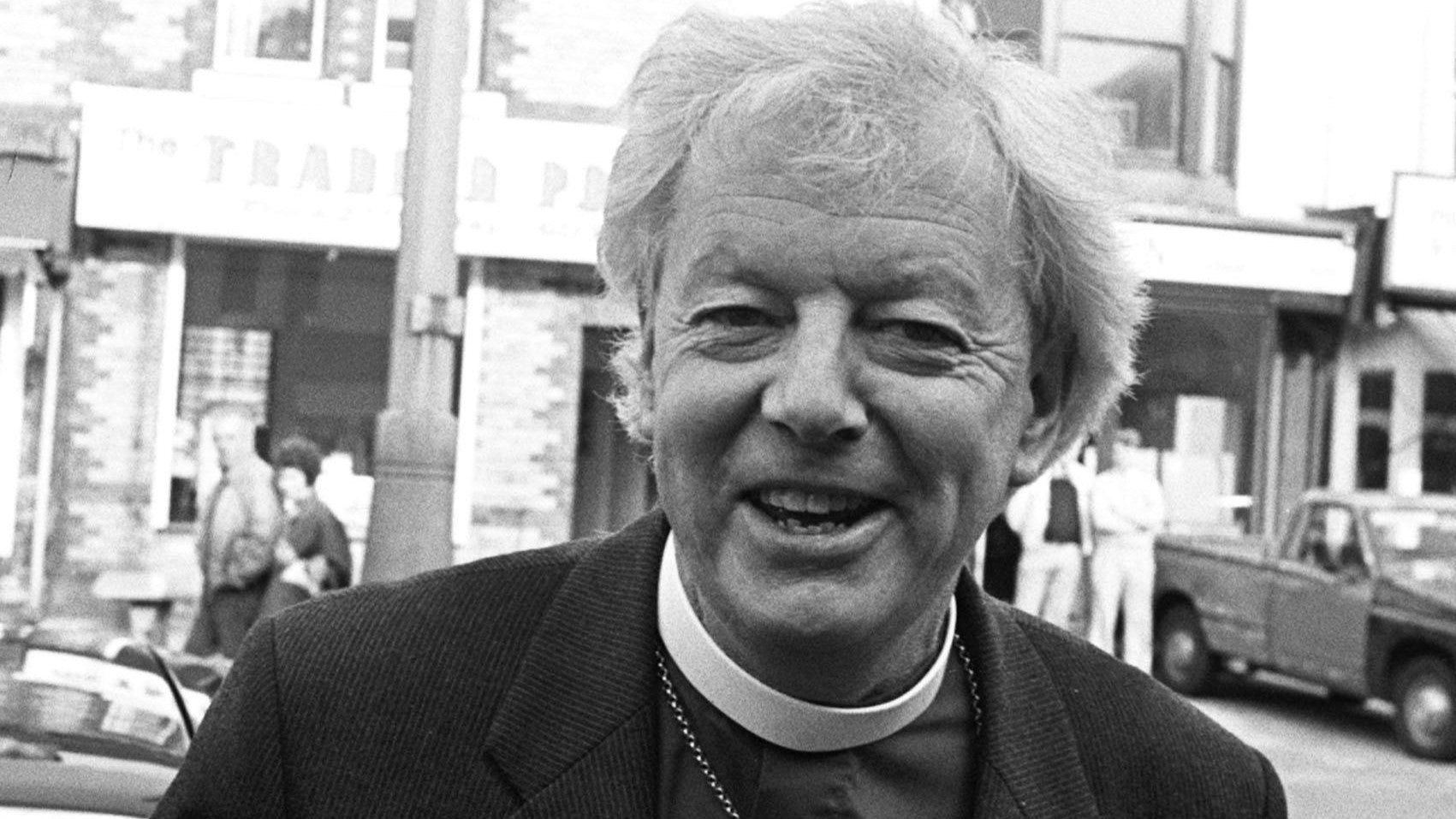WATCH: This is the sermon that Jenny Wilson preached at St Peter’s Cathedral, Adelaide, on 22 March, just after it was announced that the cathedral would suspend public worship in response to the COVID-19 pandemic.
Jenny Wilson is Canon Precentor of St Peter’s Cathedral, Adelaide with responsibilities in liturgy, music and pastoral care.â She is the author of Keeping Watch for Kingfishers, a collection of sermons that explore how we can learn to hear the voice of God in prayer, in the life of Jesus and in the human voice.
Transcript
In the name of God, creating, redeeming, sanctifying, Amen.
Over the last few weeks of Lent, we have found ourselves hearing several of the most powerful stories from the Gospel according to St John and seeing in those stories different responses to Jesus. In John Chapter 3, we saw the religious leader Nicodemus come to Jesus by night, and in John Chapter 4, we saw Jesus encounter a Samaritan woman at a well. Today, in the 9th chapter of John’s Gospel, we hear the story of the man born blind. It could have been, it should have been, a simple encounter. A blind man is given his sight. An imprisoned man is set free. It could have been a simple story. But thanks to the presence of the man’s neighbours and the religious leaders it wasn’t simple at all.
As he is walking along, Jesus sees a man blind from birth. His disciples ask him, “Rabbi, who sinned, this man or his parents, that he was born blind?” Jesus answers, “Neither this man nor his parents sinned; he was born blind so that God’s works might be revealed in him. We must work the works of him who sent me while it is day; night is coming when no one can work. As long as I am in the world, I am the light of the world.” When he has said this, he spits on the ground and makes mud with the saliva and spreads the mud on the man’s eyes, saying to him, “Go, wash in the pool of Siloam” (which means Sent). Then he goes and washes and comes back able to see.
John 9: 1-7 (NRSV. adapted)
The man born blind and the man’s parents are interrogated by the neighbours and by the religious leaders who cannot see what has happened before their eyes.
“Then how were your eyes opened?” they ask him. He answers, “The man called Jesus made mud, spread it on my eyes, and said to me, ‘Go to Siloam and wash.’ Then I went and washed and received my sight.”
John 9: 10-11 (NRSV. adapted)
The man called Jesus. The blind man says.
Then the religious leaders question the man and then they question his parents. The healing took place on the Sabbath. Trapped in a literal interpretation of the law that was given by God to bring us to life, the leaders cannot see God at work. The man called Jesus must be a sinner. The blind man, pushed further to interpret who it is that has given him his sight, sees a little more clearly. “He is a prophet,” he says.
The man’s parents, when challenged by the religious leaders are afraid and dodge their questions. “Ask him,” they say. And so the Pharisees question the man further. The man will not engage with their rules of law and the breaking of the law. He only knows one thing. “Though I was blind, now I see.” “He is loyal to his liberation, faithful to his experience.” He speaks the truth. [See John Shea, On Earth as It Is in Heaven, p. 135 (Liturgical Press, 2004).]
The religious leaders challenge the man further and eventually they drive him out of the synagogue. This act matters. He is a person of faith. He has been excluded from the house of faith. This matters and Jesus sees this.
At the opening of the story Jesus sees the man and reaches out to him. At the end of the story Jesus sees the man again and reaches out again. The man sees much now. He sees who Jesus is. “Lord, I believe,” he says. And he worships him. Through the story the blind man grows in sight. The religious leaders, though, remain blind.
We might feel a more than a little blind ourselves at the moment. Our daily lives, our religious observances, our communities, and the daily lives of every part of the world have been profoundly affected by the spread of a virus that is powerfully contagious and for some members of our community, deadly. We watch as leaders at all levels struggle to come to grips with fast-changing events and difficult scientific analysis of the best way to act as individuals and communities in response to this change in circumstances. In the church across the world, leaders with heavy hearts are scaling down and even closing gatherings in church buildings and are looking for creative ways that we might still know ourselves The Body of Christ, when we cannot be together. This Friday our Dean wrote in the Cathedral e-letter that we will not be able to meet for services for a time.
Yes. We might feel a little blind ourselves at the moment.
We might imagine going up to the blind man and asking how it was that he came to see. To see with his physical sight and to see with his spiritual sight. How was it, we might ask, that you came to see … and to know then how to live … we might ask him.
You know what he is going to say. You know what I am going to say. You can feel it coming. You know what Dean Frank and I and Revd Lynn and Revd Peter and what religious leaders across the world are going to say. For the stones of our beloved Cathedral building cry out the words and the music of our beautiful choir, now in recess, sing the words and our very hearts are made to hear the words. Because God made our hearts and wrote on them these words.
How was it that you came to see?
The man called Jesus. The blind man says. Who is it this building bears witness to? The man called Jesus. The man born blind would reply to us, “The man called Jesus made mud, spread it on my eyes, and said to me, ‘Go to Siloam and wash.’ Then I went and washed and received my sight.”
Imagine the intimacy of it. Especially now when we are not to go so near to one another and we are not to touch our faces. Imagine the intimacy of it.
The man called Jesus will give us our sight even at such a time when it is so very hard to see.
And what shall we see?
Julian of Norwich lived at a time of a plague, a time when many people died, and after a serious illness she saw some things of God, visions that God gave, special sight, if you like, of the way things truly are and especially in difficult times. Julian of Norwich said, “I did not say that you shall not be tempest-tossed, I did not say that you shall not be work-weary, I did not say that you shall not be dis-eased; but I did say, ‘You shalt not be overcome.’”
And the reason we shall not be overcome?
The man called Jesus will make mud and spread it on our eyes and tell us to go to Siloam and wash. And he will help us gradually receive our sight.
And we will know that the man called Jesus is with us, and we will know that however tempest-tossed and work-weary and dis-eased we may feel, God is walking alongside us, and we will know that we have the dear company of one another, whether we can literally hold each other’s hands or not.
For the man called Jesus is with us.
We have spent time with some of the most powerful stories from the Gospel according to Saint John this Lent. The mightiest story from the Gospel according to Saint John, the mightiest story in all the gospels is yet to come. The Good Friday story. Even this, the strangest of Lenten times, leads us there. This year in churches across the world we do not know as we usually know how we shall hear it, how it shall be sung; we cannot see what we can usually see: in what way we shall sit with that story or how it will transform us. But we do know that it will come and it will be heard and it will transform us. For nothing will stop the man called Jesus from inhabiting our world. Nothing will stop the man called Jesus from dying again and rising again. Nothing will stop the man called Jesus from making mud and spreading it on our eyes and healing our blind eyes that we might see.
